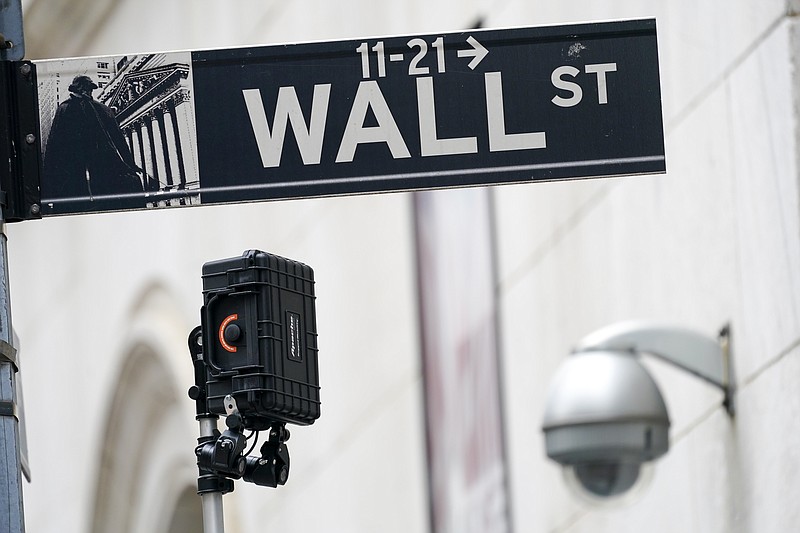Stocks closed lower on Wall Street after a wobbly day of trading Tuesday as investors wait for more data on inflation and corporate earnings this week.
The major indexes wavered between small gains and losses for much of the day, before the selling gained momentum in the final minutes of trading. The S&P 500 slipped 0.2% after having been up 0.3% in the early going.
The Dow Jones Industrial Average fell 0.3% and the Nasdaq composite slipped 0.1%. Small company stocks, a gauge of confidence in economic growth, fared better than the broader market, driving the Russell 2000 index 0.6% higher.
Technology, communication and health care companies accounted for much of the losses in the S&P 500. Intel closed 2.4% lower, while AT&T slid 2.3% and Google's parent company Alphabet dropped 1.8%. Johnson & Johnson fell 1.6%.
A mix of retailers and other companies that rely on direct consumer spending gained ground. Ford rose 3.6% and Lowe's added 0.5%. Real estate and utilities stocks also rose.
The pullback in the S&P 500 marked the index's third straight decline. After two days, the index's losses have offset its 0.8% gain last week.
The selling suggests investors are worried that they will be disappointed by the upcoming third-quarter company earnings reporting season, said Sam Stovall, chief investment strategist at CFRA.
"Investors are looking at higher rates, higher inflation, higher oil prices, and thinking the worst," Stovall said. "But when we see other factors, such as small-caps doing well or the market not really falling as much as it could, that sort of indicates to me that there is underlying strength and that investors are just waiting for a better re-entry point."
The S&P 500 fell 10.54 points to 4,350.65. The Dow dropped 117.72 points to 34,378.34. The Nasdaq slipped 20.28 points to 14,465.92. The Russell 2000 rose 13.63 points to 2,234.27. European and Asian markets closed mostly lower.
U.S. crude oil prices closed above $80 a barrel. The yield on the 10-year Treasury fell to 1.57% from 1.60% late Friday. The bond market was closed on Monday for Columbus Day.
The broader market has been choppy for weeks. Investors are trying to figure out how the economy will continue its recovery with COVID-19 remaining a threat and rising inflation potentially crimping consumer spending and corporate finances. The latest round of earnings reports will give Wall Street a clearer picture of how companies fared in the most recent quarter amid a surge in COVID-19 cases. It will also shed some light on how they expect to perform through the rest of the year.
S&P 500 companies are expected to post 27.6% annual earnings growth for the July-September quarter, according to FactSet. That's down from 28.1% growth estimated by analysts in July.
JPMorgan Chase will kick off earnings for banks on Wednesday. Bank of America, Wells Fargo and Citigroup will follow with their latest quarterly results on Thursday.
Investors will also be closely watching the latest updates on inflation from the Labor Department. It will release its Consumer Price Index for September on Wednesday, which is a gauge of how inflation is pressuring costs for consumers. Additional information on inflation pressures for businesses will be released on Thursday when the Labor Department releases its Producer Price Index.
A wide range of industries are feeling the pinch from rising inflation with higher costs for shipping and raw materials. Many companies have warned that their financial results could suffer because of the supply chain problems.
The supply chain crunch has also raised prices on many goods for consumers, which could hurt consumer spending and further stunt the economic recovery. Investors will get an update on consumer spending when the Commerce Department releases its retail sales report for September on Friday.

